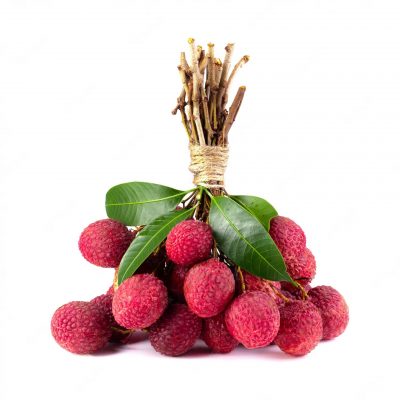Project Report For Lychee Farming
Introduction
Project Report For Lychee Farming is as follows.
The most well-known of a group of edible fruits belonging to the sapindacae family of soapberries is the lychee. It is often referred to as litchi and has the scientific name Litchi chinensis Sonn. It is suitable for regions of the world with mild subtropics and high tropics, which have chilly dry winters and warm rainy summers. Litchi is one of the most ecologically sensitive subtropical tree fruit crops.
The fruit consists of a solitary seed that is covered by a crisp, white, juicy, transparent aril or pulp that has a pleasant sweet-acid taste and is abundant in vitamin C. You may consume it fresh, frozen, syrup-cannelled, dried, or as “litchi nuts” when it is dried. With its glossy dark green foliage and vivid red fruit, the tree creates stunning landscape specimens.
Litchi fruit is a Chinese native that has been produced in India since the 18th century. India is the world’s second largest producer of litchi. India contributes for around one-fifth of world output and has strong export potential. While Bihar is the country’s biggest producer of litchi. The other major litchi growing states are Assam, Orissa, Punjab, Tripura, Uttarakhand, and West Bengal. Bihar accounts for three-fourths of the country’s litchi output. The state’s agro-climatic conditions are perfect for this fruit cultivation.

Benefits Of Lychee Farming
- Lychee’s primary components are water and carbohydrates. It is high in fibre and low in calories, making it an excellent addition to a weight loss diet.
- Litchis are high in fibre, which aids in digestion and relieves constipation.
- Lychees are high in vitamin C, which meets our daily need when ingested in moderation. Vitamin C is a potent antioxidant that helps to avoid many chronic illnesses and enhances our immunity.
- Many doctors prescribe potassium-rich foods to patients with high blood pressure. Because lychees are high in potassium, they should be on your grocery list if you want to keep your blood pressure in check. It is high in iron.
- Copper, manganese, phosphorus, and magnesium are minerals that promote bone and heart health.
- Lychees are high in antioxidant-plant chemicals including epicatechin and rutin, which can protect against oxidative stress, chronic illnesses, cataracts, diabetes, heart disease, and cancer.
- The copper in lychee encourages hair development.
- Lychee contains antioxidants and vitamin C, which are helpful to the skin and aid in the removal of blemishes.
- Lychees have a low glycemic index, making them safe for diabetes people to consume in moderation. They also help to prevent a fast surge in blood glucose levels.
- Lychees are one of the greatest summer fruits due to their high vitamin and antioxidant content, as well as their multiple health advantages.
Get Completely Custom Bankable Project Report
Market Potential Of Lychee Farming
At a predicted CAGR of 3.4% from 2021 to 2028, the worldwide lychee market, which was valued at USD 10.3 billion in 2020, is expected to expand to USD 13.46 billion by 2028.
The worldwide Lychee market research offers in-depth analysis of each segment, including Types, as well as each region and nation. All segments are investigated in terms of historical and prospective trends across regions. All segments cover trends, market size, and predictions, with data available from 2016 through 2028.
Furthermore, the report includes a thorough analysis of the worldwide market’s competitive environment, including in-depth company profiles according to business overview, financial results, assortment of goods, business strategies, recent developments, and market share, among other things. Furthermore, the study provides market effecting elements such as drivers, constraints, and opportunities. The research will comprehensively cover all areas of the global Lychee market.
The Asia-Pacific area produces the majority of lychees. Lychees are mostly produced in China, Vietnam, India, Taiwan, and other Southeast Asian nations. Madagascar lychee has a considerable presence in the European market. As a result, increased demand and favourable government backing are projected to drive market expansion in the future years. The lychee market is expanding because consumers in rising and developing nations all around the world desire more fresh food. Favourable government efforts and increased commerce from major manufacturers boost the market’s expansion. Jam, juice concentrates, canned lychee, dried lychee, and other items are also in high demand. Vietnam has a deal with lychee producers to supply lychees to Japan by the end of 2019.

